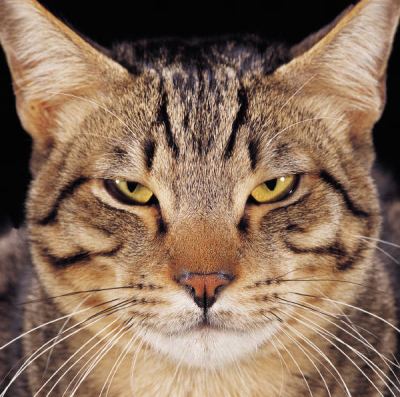
Could 8 Out of 10 Cats Loathe Lockdown?
While dogs seemed to have thoroughly loved locking down with their human companions, research indicates that cats haven’t enjoyed this constant attention quite so much. Responses to a survey of cat owners suggests many cats seem to have become depressed, stressed-out and even aggressive to their owners during the government imposed Covid lockdowns.
Some Cats Don’t React Well To Change
Findings by professor of veterinary behavioural medicine M. Leanne Lilly, of Ohio State University explained that pets – like people – show a variety of responses to change. Some animals love the fact their human companions are marooned at home, some don’t notice that their owners’ routines have changed at all, but still others are finding the sudden disruption of their routine a stressful experience.
Cats Become Resigned Rather Than Depressed
Graduate of the European College of Animal Welfare and Behavioural Medicine, Dr Emmanuelle Titeux, argues that a diagnosis of ‘depression’ isn’t appropriate for animals.
Dr Titeux says that, in animals, what we call depression is actually a sort of ‘resignation’. The animal finds itself in new a situation but has no way of adapting to it. Instead, it enters a state of apathy. Such a situation might well be the sudden and constant intrusion of human attention. And just when they’ve got used to it all, everything changes yet again.
Preparing Cats For Life After Lockdown
While cats are very independent animals, they become deeply attached to human company during lockdown. Researchers for Petplan found that 49% of cat owners were concerned about their pet suffering separation anxiety when normal working life returns.
Suddenly being left alone may be confusing and stressful for cats who’ve grown used to the lockdown-love of constant company. This is especially true for cat breeds such as Burmese or Siamese, specifically bred for their suitability as house cats.
Patience Is Key To The Return To Normal
Cats and kittens, potentially stressed by the absence of human presence, need preparing for something more like normal feline behaviour. Petplan offers online advice on preparing potentially anxious cats for a stress-free home-alone life stress-free life after lockdown ends. The key to helping cats readjust to their owners’ absence is patience in resisting the urge to punish stress-related bad-behaviour.
Places to Rest, Play and Hide Away
Think how you might encourage your over-socialised cat back into its natural role of solitary independent hunter. Engaging them in short bursts of activity; such as by dangling toys or rolling balls of screwed up paper for them to hunt and chase. Hiding dried food for them to search out or to extract from an activity feeder will rekindle their curiosity and problem-solving ingenuity as well their natural dexterity, drive and determination.
A Feline Fortress Of Solitude
Cats need consistency and value cleanliness. So when you return to your daily out-of-the-house routine, make sure their indoor litter trays are accessible with plenty of room in and around, and topped up with clean dry litter. And even though you’re not at home, give your cat a place of safety to which he or she can retreat whenever the need is felt to hide away in their very own feline fortress of solitude.
Visit our website www.vetlabsupplies.co.uk or Tel: 01798 874567

